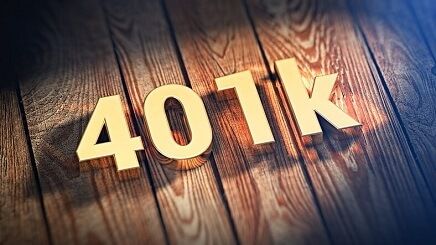A 401(k) is actually quite simple. In a nutshell, money gets taken from your paycheck before taxes are taken out. This means that you’re actually going to have a lower taxable income. In turn, the less taxable income you have, the less taxes you’ll wind up owing. So, a 401(k) is a retirement savings plan that actually saves you money by lowering your tax bracket, and also provides you with a retirement account when the time comes for you to stop working.
401(k) Versus Savings
You might be curious as to what the difference is between a 401(k) retirement account and a regular savings account. A 401(k) can take you out of a higher tax bracket by having your retirement savings come out before taxes. On the other hand, a regular savings account takes the money out after taxes are withdrawn. So, when it comes to a regular savings account, you’ll pay more by being in a higher tax bracket, which actually might offset any savings that are being put away.
Contribution Amount
Before you get too excited and start planning to put as much money into a 401(k) account as possible, you should know the Internal Revenue Service puts a limit on the amount of money that can be put into the account each year. In 2017, you could put away a maximum of $18,000 into a 401(k) plan. If you are age 50 or older you can make additional catch up contributions of $6,000. Also, in many companies, employers will often pay into an employee's 401(k) retirement account by matching a percentage of the employee's contribution.
Deferred Taxes
Another benefit to having a 401(k) retirement plan is having taxes deferred until you withdraw the money at retirement. So, since the 401(k) actually reduces your tax rate, you won’t be paying taxes on the money until you withdraw it. Since many people tend to be in a lower tax bracket when they retire, the 401(k) actually has you paying a smaller tax rate on your savings when you take it out of the account.
Roth 401(k)
Roth IRA contributions are made with after-tax dollars. The account grows tax free, and withdrawals taken during retirement are not subject to income tax as long as you hold the account for five years or more.
Loans
Another benefit that comes with a 401(k) retirement plan is the option to borrow money from the account for reasons ranging from buying a house to paying medical expenses or education expenses. This loan usually needs to be paid back within a 5-year time frame, although that can sometimes be extended in the case of buying a home.
The Right Time to Start a 401(k) Plan
You might wonder when the best time to start a 401(k) might be, and the answer is: right now. The sooner you start the plan, the sooner you’ll begin putting money away for your retirement and the sooner you’ll be lowering your taxable income rate. It’s important to remember that it’s never too late to start saving for the future.
